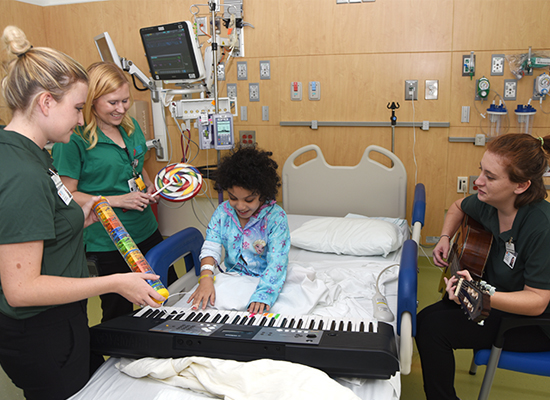Many of us have probably experienced the sensation of a beautiful piece of music taking us to another place. We may forget where we are and what we were feeling at that time. As an alternative cancer treatment the application of music therapy can have desirable benefits on how the patient feels and how he/she deals with the disease and the treatments involved. We will get into more detail on this interesting topic.
Music therapy is a technique which can be used by medical practitioners to help to enhance healing and improve the quality of life for their cancer patients. It helps to elicit strong emotions and relieve some of the symptoms traditionally associated with cancer and cancer treatments. It is not necessarily promoted as a cure or direct treatment for cancer itself but rather as a way to help the patient to deal with his/her disease and treatment.
 Many cancer treatments unfortunately have undesirable side effects like nausea, vomiting, and fatigue. The use of music therapy has been shown to help patients to overcome some of these side effects by helping them to focus on other things. The music is a great way to provide a different focus and place their attention on more pleasant topics and environments.
Many cancer treatments unfortunately have undesirable side effects like nausea, vomiting, and fatigue. The use of music therapy has been shown to help patients to overcome some of these side effects by helping them to focus on other things. The music is a great way to provide a different focus and place their attention on more pleasant topics and environments.
When applied correctly the patient can get lost in the music. They can learn to become very focused on the sound and imagery it evokes. So rather than become focused on their discomfort and stressful situation, they can become much more involved in the music and the pleasant places it takes that person to.
Since music therapy can be very relaxing for most patients, it has also been found to lower heart rate, blood pressure and the overall breathing rate.
In some cases a cancer patient who is a child can be become bitter, scared and withdrawn.
They can really benefit from the social interaction of friends and loved ones. Music therapy has been used very successfully to get children as well many others to get involved socially and improve their attitude. Just singing a song with others can be a very fun experience for people. So this is certainly an important aspect of music therapy.
A trained music therapist tailors his/her approach depending on the individual situation like the age, sex, and medical condition of the patient. They also take into account the musical tastes of the patient as well as other relevant factors like ethnic background, etc.
The great thing about music therapy is that it can be easily brought to the patient and applied just about anywhere. And it can be used at different times for different purposes. In some cases it may be used to help lower pain after surgery or other medical procedures. Or it can be a great way for patients to pass the time and focus on other things while they are undergoing chemo or radiation therapy.
Music can bring out a great deal of joy and hope in so many of us which is why it can be a great way to help cancer patients to relieve some of their pain and discomfort and help them to achieve a much better quality of life.



